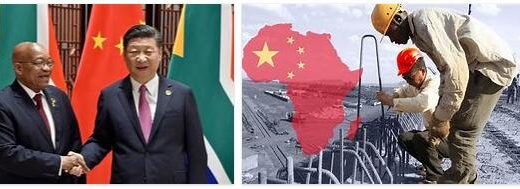The Financial Crisis 2009 Part II
The distribution between the government spending the money itself and handing it over to households in the form of tax breaks varied between countries. One rule seems to be that the more social democratic the government is, and the stronger the unions are, the more money the state spends itself and the less goes to tax cuts.
In the center of the crisis, the United States, the state spent a good deal more money than in the EU. Norway, too, with its large pension fund – ie “money on the books” – was able to spend a lot per capita. When we also know that Norway is among the countries that were, after all, mildly affected by the crisis, we understand why things – right now at least – look better here than most other places.
Interest rate policy has also been used with great force. In the US, interest rates have long been close to zero, but they have been low almost all over the world. Some believe that low interest rates do not help the players in the business world as much as one might have hoped. In a period where banks are cautious about lending money and where the interest rate premium on risk projects is high (the price of risk increases in bad times), it is – as I said – limited how much economic activity is triggered by low interest rate policy.
However, stock markets around the world have benefited from low interest rates. When the interest rate is low enough, it is not tempting to have money in the bank. We can say that low interest rates push money out of the bank and money market funds and onto the stock exchanges and other speculative objects (housing, commodities, agricultural land, etc.).
4: Keynes returns
The idea that the state has a responsibility to maintain aggregate demand in times of recession is associated primarily with the well-known British economist John M. Keynes. He developed his analysis in the shadow of the great financial crisis and depression that hit the world from 1929 onwards. His thoughts influenced economic policy in rich countries particularly strongly in the period from World War II until the mid-1970s. In contrast to the economic mindset that has dominated the world for the last 35 years (economic liberalism), he believed that capitalism is fundamentally unstable and that it must therefore be saved from itself. There are two – not one – policy recipes for this:
- “Everyone knows” that the state must intervene and stimulate the use of money once the downturn is upon us. (Keynes 1)
- The state must try to curb the more speculative aspects of the market. Keynes himself used the term “casino” to describe the state of financial markets, which has become too speculative. (Keynes 2)
The problem the world community has faced in the aftermath of the financial crisis is the transition from Keynes 1 to Keynes 2: Crisis packages and low interest rates were rolled out immediately, but what has been done to curb the speculative economy that led us into the crisis?
According to PRINTERHALL, a number of different measures have been discussed in everything from newspaper columns, to various national and international decision-making arenas such as BIS ( Bank for International Settlements ), G20 , UN , EU , Financial Stability Board) to name five of the most important.
5: Useful banks – casino banks
The United States and the United Kingdom house the world’s two most important financial centers – Wall Street and the City of London. After the crisis, important players in the debate on the future of the financial industry in both places have proposed to distinguish between “useful” banks ( utility banking ) and casino banks .
To understand this distinction, we need to know what an ordinary bank does. It accepts deposits that can be withdrawn at any time . These are then converted into loans that are repaid over a long period of time . This goes well as long as enough people have money in the bank at all times. If, on the other hand, we panic and run into the bank – at the same time – the bank quickly runs out of cash. We get what is called a self-fulfilling prophecy. Ie. something happens because people think it is going to happen and act accordingly. To avoid this – panicked withdrawals – it is common for the authorities to guarantee for people’s deposits. When we know that the state, no matter what happens to the bank, gives us our money back, it becomes superfluous to run in the bank even if we should not completely trust it anymore.
The point of distinguishing between “useful” banks and casino banks is that in such a system, only useful banks will be allowed to accept deposits. Thus, only these will benefit from the insurance provided by a government guarantee for deposits. Put another way: If you want insurance from the state, you are not allowed to take too much risk. We recognize the logic of ordinary insurance business: Many insurance companies require you to behave in a way that reduces the risk that what you are insuring against will occur. For example, they may require that you have an alarm on the car or that the house should have smoke alarms.













